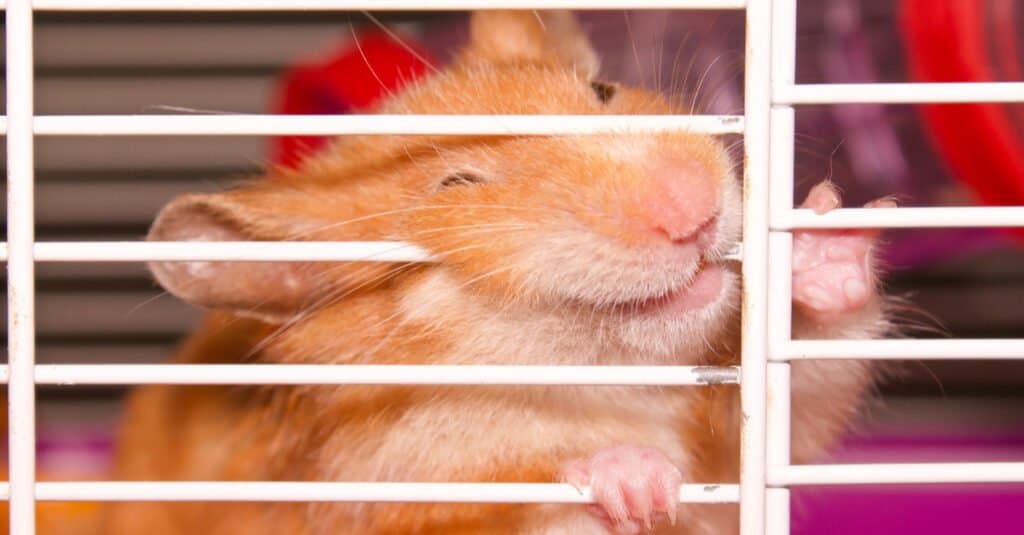Hamster Poop Consistency
If you have a hamster, you may be surprised to discover that it has a distinct, oval-shaped poop. Typically, it is dry, firm, and does not have a strong odor. The consistency of hamster feces may vary depending on the health of your hamster. It may be softer in some cases, or harder in others.
Changing fecal consistency
Changing the fecal consistency of a hamster’s poop is one of the simplest ways to improve your hamster’s health. The normal color and texture of a hamster’s fecal matter is light brown, and if you notice a change in the consistency of a hamster’s droppings, it’s probably an indication that your hamster is having some kind of health issue. The consistency of the poop itself can vary depending on the food hamster is eating. However, if the poop is unusually watery or softer than normal, it may be a sign of a more serious underlying problem.
When a hamster is frightened, they may urinate. When hamsters are scared, they’ll release urine as a defense mechanism. In addition, they may flatten out on the floor and run away. It’s crucial to watch out for signs of stress in your hamster. If you notice this behavior, try changing the environment of the cage or lifestyle.
Wet or soft poop
When you notice that your hamster is producing softer or wetter poop, this is a sign that they may be having a gastrointestinal problem. This softer poop can be indicative of a bacterial infection or a disease. However, it is important to not panic. Just like humans, hamsters can also eat their own poop, so it’s important to keep an eye on your hamster’s poop to ensure that they aren’t suffering from a gastrointestinal disorder.
The most common cause of soft or wet poop in hamsters is stress. Young hamsters are often transported from the breeder to their new home and sometimes even back to the pet store. This process causes a large amount of stress in a hamster, which causes the intestines to overpopulate with bacteria, which leads to diarrhea.
Cecotrophs
Cecotrophs are small, round particles that hamsters excrete during the digestive process. They often stick together like raspberries, and are dark brown in color. They contain mucus and a slight sheen, and they smell slightly pungent. Although they aren’t considered true feces, cecotrophs are a vital component of a hamster’s diet. They provide a variety of benefits to your hamster, including:
Cecotrophs contain higher concentrations of protein and essential fatty acids. They also contain high amounts of vitamin K and B vitamins. These nutrients are essential for maintaining healthy gut flora.
Stress
Hamsters can develop bacterial overgrowth, or diarrhea, for several reasons, including new foods, stress, or even a variety of infectious diseases. This condition can affect your hamster’s behavior and quality of life, and it should be treated immediately by a veterinarian. In addition to treating symptoms of diarrhea, you should also clean your hamster’s cage regularly, and use disposable gloves to handle any contaminated materials.
Hamsters are nervous creatures, and a stressful environment can trigger them to poop excessively. To reduce the chance of this happening, keep your hamster cage clean, spacious, and quiet. You should also avoid putting your hamster in a room with a cat or larger pet, as they may feel threatened. Also, make sure that your hamster has adequate food and water, as well as plenty of toys to keep them occupied.
Diet
The best diet for a hamster may be surprising. This small animal is a herbivore and has an inefficient digestive system, so its droppings usually contain partially digested food. This allows it to recover nutrients. In contrast, human feces contain mainly digested material. These faeces are considered garbage.
Cecotropes are small, irregularly shaped, and sometimes stuck together like raspberries. They are dark brown and have a slight sheen. They are more pungent-smelling than normal droppings, but they have several advantages for your hamster.
Stress can affect hamster poop
A variety of factors, including stress, can affect a hamster’s poop. If your hamster experiences high levels of stress, he will likely poop more frequently. He may also poop more often if other animals in his environment cause him stress. Other factors that can cause hamster poop to increase include eating a high-fiber diet and eating lots of fresh fruit and vegetables.
Stress can cause diarrhea and can lead to wet tail. Diarrhea in a hamster is associated with parasites or bacteria and should be treated with a hamster veterinarian. A wet tail may also be a sign of Cryptosporidium infection. It is important to clean your hamster’s cage at least once a week.
